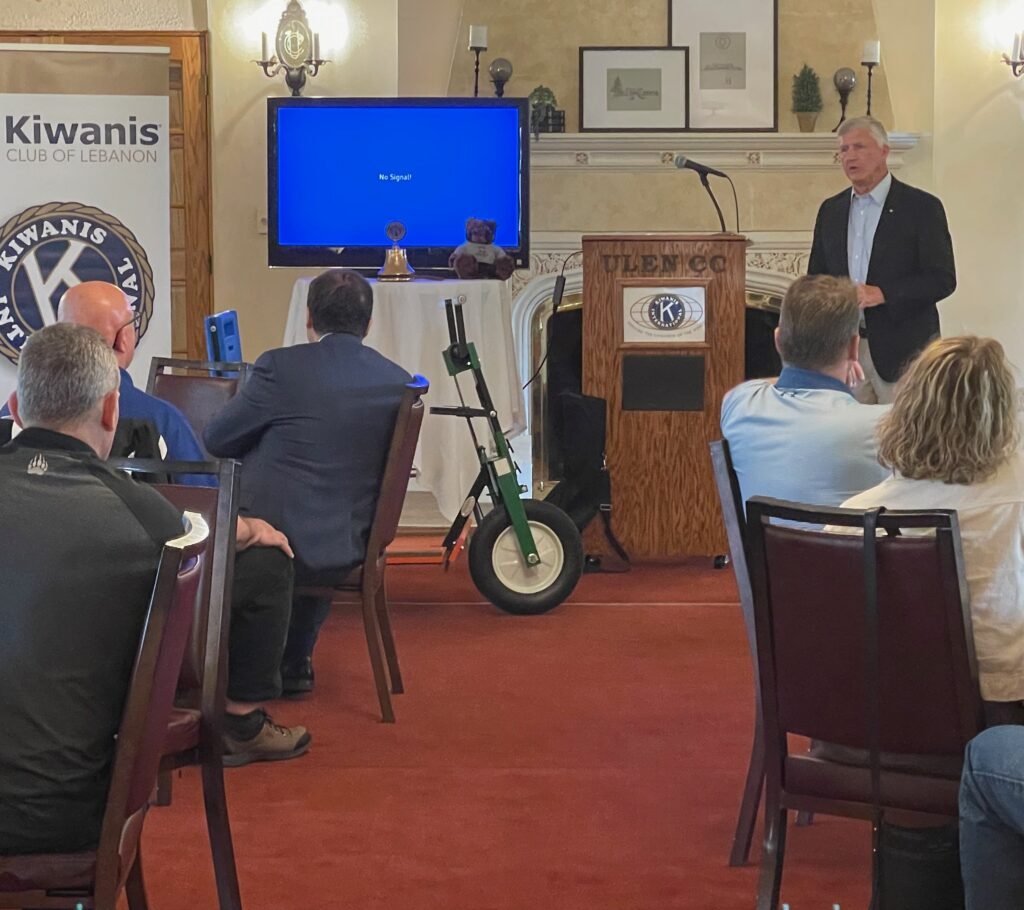Lebanon, Indiana … Despite being 9,000 miles away from Lebanon, Indiana Jim Messenger a local resident, and member of the Board of Directors for the Malawi Project, revealed several stark realities concerning the plight of the people in the sub-Saharan nation of Malawi. He was addressing the Lebanon, Indiana chapter of Kiwanis International, and revealed several facts concerning the suffering of the people of this African nation. Malawi is slightly larger than the state of Indiana and is a land locked nation on the East Central side of the African continent.
Beginning with painful and problematic statistics about this central African democracy of slightly more than 20,000,000 people, Jim noted it is one of the poorest nations on earth, yet one of the most peaceful and hospitable. He then highlighted two of the programs in which the Project is engaged.
The first, and a major program for the Project, revolves around the issue of mobility. With thousands of Malawians suffering from mobility issues, brought on by accidents, birth defects, polio, cerebral malaria, and other life changing calamities, he noted a cooperative program between Mobility Worldwide in Demotte, Indiana and the Malawi Project is bringing life-changing hope and benefits to hundreds of people each year through the delivery of mobility units for those who previously had no hope. To date, Jim said, the two groups have delivered over 2,000 mobility units nationwide in less than 5 years.
The second program, considered lifesaving because of the critical need, is the Baby Pack Project. As with the mobility unit sitting near the front of the room, Jim also had a Baby Pack to pass around for all to see. These packets are prepared in the states by interested individuals and groups. They include the first tiny cap to keep a newborn warm, to a onesie and blanket to protect the baby, as well as a razorblade and string to separate the mother from her baby at birth. These packets, considered lifesaving by Doctors Without Borders, generated a lot of conversation and a pledge from one Kiwanian to persuade her church group to start making them for expectant mothers. This group will join other groups around the nation who are committed to be hands on, and personally involved, in helping the people of Malawi rather than just writing a donation check.
Jim went on to point out the noticeable difference between typical global mission groups and the Malawi Project. While maintain tight controls over the programs the Malawi Project depends on the Malawians to step forward and accept responsibility for the program. The U.S. side plays a supportive role, not a controlling, leadership role in the work. Four years ago, the Project provided funding for the Malawians to purchase land and build a 10,000 square foot distribution center near the capital. Intentionally, the Project did not own either the land or the building. It is owned and managed by the Malawians themselves, in an intentional plan to allow the Malawians the independence to create their own success story. “In this way,” Jim pointed out, “we are avoiding creating dependency, but are encouraging independence and success on the part of the Malawians themselves. It makes the Malawi Project unique among aid assistance groups and is a major key to quite a successful endeavor.”

